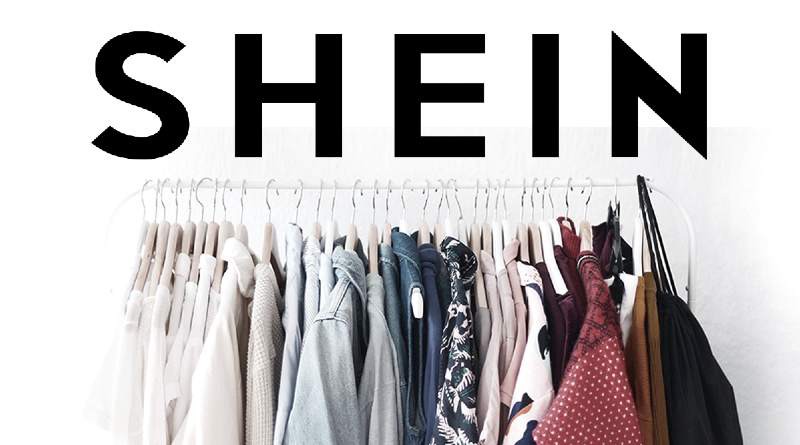Why is SHEIN so cheap? Inside Shein’s controversial culture

Why is SHEIN so cheap – It’s wise to pause for reflection if an offer seems too good. In fashion, there is a somewhat updated version of the adage: “If the price seems too good to be true, it probably is.” The low prices of items sold on Shein’s website (a wedding dress, for example, can be purchased for only 30 pounds, or $37.65) leave many customers wondering how the company stays in business.
Not only that, but this isn’t a dusty, out-of-date gown. Instead, the internet provides one that is now fashionable. The icing on the cake is that if you buy a few more things, Shein will send them to you at no cost. The question of why is shein so cheap is frequently asked by fashion influencers.
The price point may seem too good, yet Shein offers such discounts. As a result, customers continued purchasing from Shein despite their concerns about the company’s pricing, fueling the business’ expansion. Let’s discuss why it is shein so cheap in detail.
Shein’s warehouses are small and seldom keep inventory for over 90 days at a time.
Shein gathers clothes at its headquarters in Guangzhou, China, from various manufacturers. From its massive distribution center in Guangzhou, the company distributes its clothing to its many warehouses across the globe.
Large quantities of clothing from most brands are sent to stores in shipping containers, driving up the price of doing business for everyone involved. Yet, most apparel orders placed on Shein are fulfilled through direct shipping.
Sending garments to storage facilities in the United States and Europe is done to expedite international delivery. Also, Shein quickly updates their inventory to reflect the latest and greatest in fashion.
As reported by the BBC, less than a third (36%) of Shein’s goods stay available for more than three months. In three months, 94% of Shein’s stock will be brand new items if you visit the site today. Because of the quick pace at which fashion trends change in the Shein universe, customers are encouraged to make many purchases over time.
The company’s success depends on the number of its sales. Consumers need to see new items whenever they check in. Shein is an e-commerce platform that sells fresh, limited-edition fashions in tiny quantities. The program will automatically place new clothing orders for the most well-liked designs and cancel them for the least popular ones.
It keeps things flowing and prevents unneeded inventory from piling up in the warehouse aisles. Customers at Shein place orders online. Thus the retailer is continually in tune with consumer tastes. Shein’s online-only model eliminates the need for brick-and-mortar stores, which saves money on rent, utilities, and payroll. Sometimes, pop-up Shein stores may appear, but the corporation has yet to make plans to establish physical sites permanently.
One of Shein’s original owners, Li Peng, told WIRED, “We were looking for low margins and enormous numbers.”
Read More – Money-Saving Hacks for Shopping Makeup Online
Shein can keep their clothing prices low because of outsourcing.
This is Another big reason why shein is so cheap. Much of the apparel sold on Shein’s website is manufactured by a third party, with its label sewn onto the garments.
Once China joined the World Trade Organization in the middle of the 2000s, it quickly became a central hub for manufacturing clothes. During that time, Xu Yangtian, CEO of Shein, and Wang Xiaohu, a senior executive at the company, sought out Li Peng for counsel.
While the company’s origins may be traced back to Nanjing, China, its first focus was on something other than the apparel industry. However, as many Western firms are now sourcing apparel from China, Li, and Wang decided to follow suit and start stocking garments at their company.
Representatives purchased clothing samples and marketed them online under several domain names to see which products and vendors were most popular with consumers. Shein has always relied on consumer feedback to determine whether or not to restock an item.
The cheap pricing offered by Shein helped the firm sell a lot of inventory while lowering customers’ quality standards. At some point, Xu broke up with Wang and Li to establish SheInSide, which then mutated into Shein in 2015.
Because of outsourcing, other businesses have to make Shein’s low-cost goods. They’re all trying to copy Shein; everything is cheap and fashionable, like their items. So the clothing suppliers sold on Shein provide it to the firm at even lower rates than the website’s already shockingly cheap pricing to earn a profit. Several have speculated that Shein’s suppliers are using low wages to set these rates.
According to research by the Swiss advocacy organization Public Eye, employees at firms supplying Shein are under extreme pressure to turn clothing around. After an investigation, Public Eye learned that most employees worked three shifts daily and had just one day off monthly. In addition, some employees were motivated to work 75 hours a week by being paid for each item of clothes they produced.
To make ends meet, “excessive working hours are the result,” David Hachfeld of Public Eye told The BBC. In addition, a prominent fashion professor at the University of Lincoln, Victoria Bellandini, told The BBC that there is a pervasive lack of transparency behind industry norms.
Read More –The Pros and Cons of Online Grocery Shopping
Shein disputed that the firm or its affiliates abuse cheap labor:
WIRED’s study confirmed the findings of Public Eye’s article. WIRED, like Public Eye, discovered problems with worker safety in several companies where supplies were made. WIRED reports that Shein received a perfect score of 150 from Remake, a group that promotes ethical business practices. Shein’s lack of transparency makes it hard for groups like Remake to evaluate the company’s effect on the natural world.
Despite this, it is believed that Shein’s promotion of discarding out-of-style garments has contributed to the dramatic rise in textile waste in landfills. In addition, after an audit, Shein discovered that 83 percent of its partners were taking “significant risks” in their business practices. Twelve percent of the companies had committed “zero-tolerance infractions,” which might include coerced or underage labor or significant problems with health and safety.
Concerns have been raised that some of Shein’s textiles come from Xinjiang, an area in China where the Uyghur people are known to be forced into labor. A spokesman for Shein didn’t say that Xinjiang cotton isn’t used, but they also didn’t confirm it. The agent stated:
“We have a program in place to identify the origin of cotton, we undertake transparency exercises, we engage with our suppliers, and we ensure that everything we source and acquire is compliant with the market it is going into.” However, public Eye discovered that employees were not compensated relatively despite lengthy shifts. In his words, David Hachfeld remarked.
Shockingly, a business with such clout and revenue still needs to fulfill its obligation to guarantee that salaries are sufficient to support a family in a standard length and intensity workweek. Shein’s website declares a “zero-tolerance policy” against partners that break labor rules in the “Social Responsibility” section. The company Shein says it is proud to be a part of since it “proactively pushes against unethical activities.”
Shein prefers to employ influencers to promote rather than expensive traditional advertising.
When many businesses were cutting down on staff due to the coronavirus epidemic, Shein projected revenues of $10 billion in 2020 and $15.7 billion in 2021. In addition, most individuals, during the epidemic, stayed indoors and watched social media videos. As a result, creators on TikTok saw a rise in subscribers and views, increasing their income.
FAQs
Does shein have good quality?
The quality of items from Shein varies widely depending on the pricing.
Can you trust shein?
When shopping online, trust Shein. They offer an excellent return policy if you are a U.S. customer (free return shipping on the first package from your order within 30 days).
Who is shein owned by?
The Chinese e-commerce company Shein (/in/ SHEE-in; stylized as SHEIN; traditional Chinese: pinyin: Xyn) sells trendy clothing and accessories at low prices. Shein was established in 2008 by Chris Xu in Nanjing, China.
The above-listed portion explains everything you should know about why is shein so cheap.
Read more: Why is SHEIN so cheap? Inside Shein’s controversial culture- The Future of Home Entrances: Innovations in Composite Doors
- What Happens to Royalties After You Die
- Exploring the Transformative Impact of the Intranet in Empowering Small Businesses
- Is It Entirely Unlawful To Gamble Online In The US
- Here Are Some Of The Most Common Contaminants Your Car Encounters During The Winter






